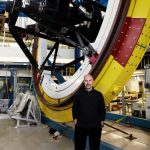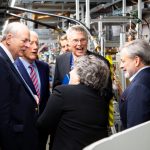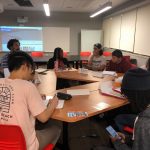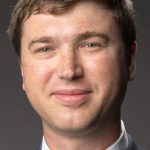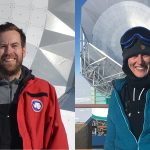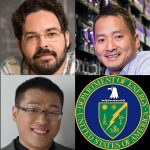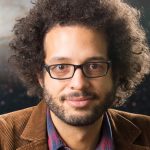The inaugural Office of Science Distinguished Scientist Fellowship program aims to promote collaboration between national laboratories and academic institutions. One of only five scientists awarded the fellowship, Frieman will use the funds to stimulate synergies between Fermilab and the University of Chicago in cosmic frontier research.
edited by Leah Hesla
Leah Hesla is a science writer at Argonne National Laboratory and former senior writer in the Fermilab Office of Communication.
Two students have received the prestigious DOE Office of Science Graduate Student Research fellowships to conduct their research at Fermilab. The goal of the program is to prepare graduate students for STEM careers critically important to the Office of Science mission by providing graduate thesis research opportunities at DOE laboratories.
The Event Horizon Telescope collaboration, which announced the first image of a supermassive black hole in April, has won the 2020 Breakthrough Prize in Fundamental Physics. Fermilab scientists Bradford Benson and Alexandra Rahlin are among a large group of scientists who share the prize for their contributions to the achievement.
The funding supports initiatives in the rapidly evolving field of quantum computing. Fermilab scientists and engineers are simulating advanced quantum devices that will in turn improve particle physics simulations. They’re also developing novel electronics to work with large arrays of ultracold qubits.
Nord and a University of Chicago scientist will apply the tools of artificial intelligence to accelerate discovery by automating the design and execution of cosmic experiments. The grant is part of an initiative to provide seed funding for collaborative projects in AI and quantum science between the university, Fermilab and Argonne National Laboratory.

